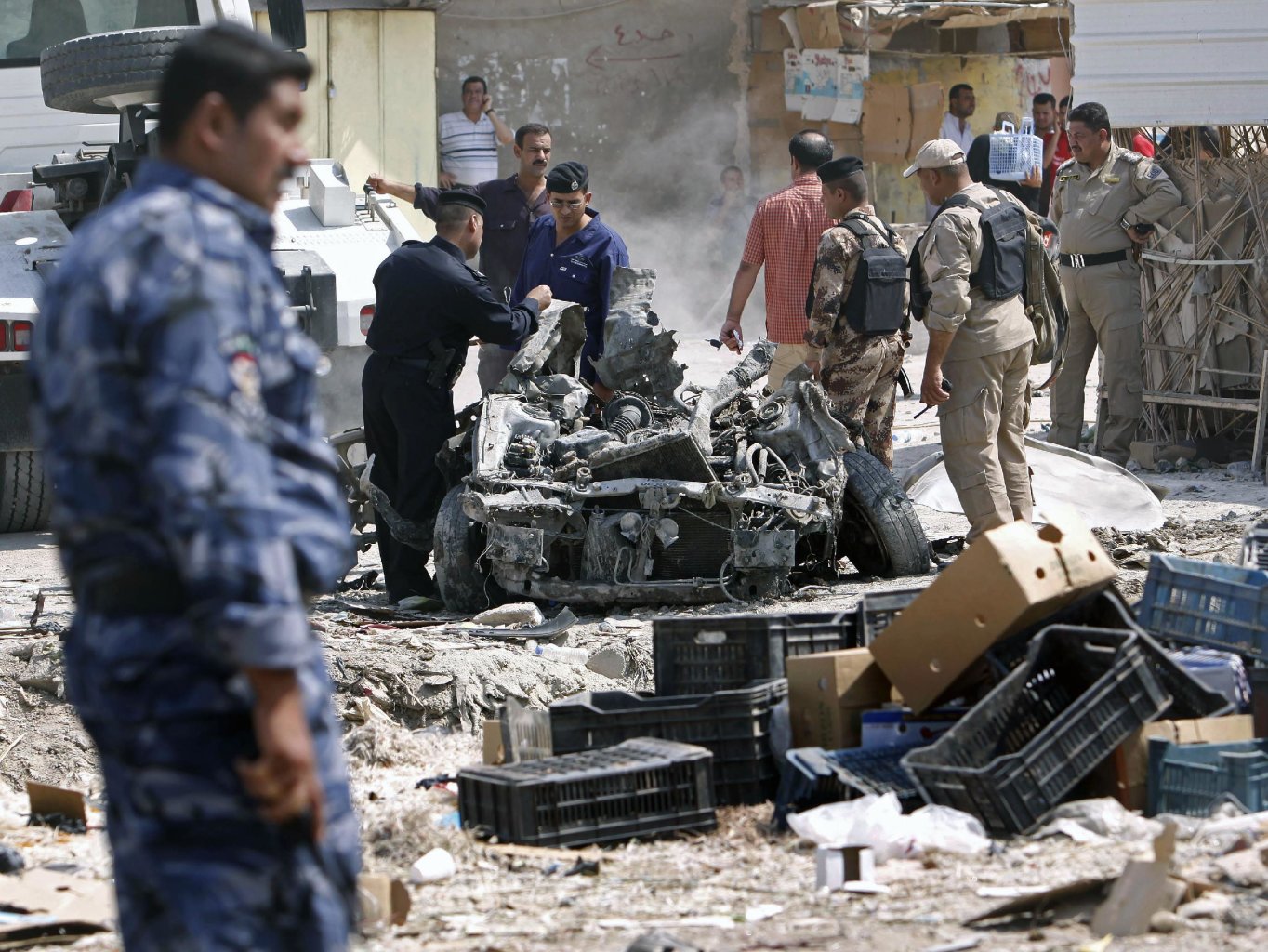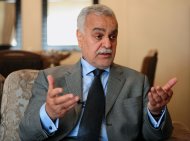 |
| Site of a car bomb attack in Basra in the south(AP) |
The courtroom at Baghdad's criminal court was silent Sunday as the presiding judge read out the verdict. It convicted al-Hashemi and his
son-in-law, Ahmed Qahtan, of organizing the murders of a Shiite security
official and a lawyer who had refused to help the vice president's
allies in terror cases. The two defendants were acquitted in a third
case of the killing of a security officer due to a lack of evidence.The court sentenced both men in absentia to death by hanging.
Iraq's fugitive Sunni vice president Tariq al-Hashemi, was sentenced Sunday to death by hanging on charges he masterminded death squads against rivals in a terror trial that has fueled sectarian tensions in the country. The verdict coincided with an onslaught of bombings and shootings in 13 cities across Iraq, killing at least 92 people in one of the deadliest days this year. There are, however, no indications that there was a connection between the two.
 |
| Tariq al-Hashemi |
Al-Hashemi fled to Turkey in the months after the Shiite-led government
accused him of playing a role in 150 bombings, assassinations and other
attacks from 2005 to 2011 — years in which the country was mired in
retaliatory sectarian violence that followed the 2003 U.S.-led invasion
that ousted Saddam Hussein's Sunni regime. Most of the attacks were
allegedly carried out by al-Hashemi's bodyguards and other employees,
and largely targeted government officials, security forces and Shiite
pilgrims.
The vice president
declined to immediately comment on the verdict after meeting with the
Turkish Foreign Minister Ahmet Davutoglu in Ankara. He said he would
"tackle this issue in a statement" in coming hours.
The
politically charged case — which was announced the day after U.S.
troops withdrew from the country last December — sparked a government
crisis and fueled Sunni Muslim and Kurdish resentment against al-Maliki,
whom critics say is monopolizing power.
The countrywide attacks began
before dawn, with gunmen killing soldiers at an army post in the central
Iraqi city of Dujail. A few hours later, a car exploded in a lot where
police recruits waiting in line to apply for jobs outside Kirkuk in the
country's north. Both Dujail and Kirkuk are former insurgent
strongholds. Over the day, at
least 92 people were killed and more than 360 wounded in at least 21
separate bombings and shootings, according to reports from police and
hospital officials. No group immediately claimed responsibility, but
Iraq's Interior Ministry blamed al-Qaida in Iraq.
The carnage stretched into the country's south, where bombs stuck to two
parked cars exploded in the Shiite-dominated city of Nasiriyah, 320
kilometers (200 miles) southeast of Baghdad. The blasts were near the
French consulate and a local hotel in the city, although the consulate
did not appear to be a target of the attack. A string of smaller attacks Sunday also struck nine other cities. It was
one of the worst outbreaks of violence in Iraq in 2012, although the
single deadliest day was July 23, which saw at least 115 people killed —
the most in more than two years.


.jpg)


No comments:
Post a Comment